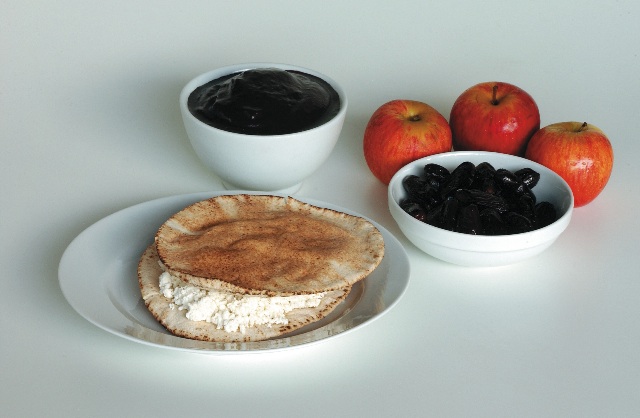The Power of Grape Juice
By Adriana Gracie
The grape juice is a natural elixir for longevity, has a good amount of iron, vitamin C, B vitamins, potassium and other minerals. It is excellent to prevent tumors, has antioxidant action, increases blood flow, reduces thrombus formation, protects the cardiovascular, liver, nervous systems and more.
This is not a revolutionary new drug or a miraculous elixir, but grape juice is rich in polyphenols, antioxidants that protect cell membranes and the DNA. Its antioxidant action is one of the main health benefits, but grape juice has other powerful actions as well. In the circulatory system, it works like a vessel dilator that inhibits the formation of thrombosis. Yet, the benefits are far from stopping there!
The liver is the filter of our body, but it leaves many residues that are toxic. Grape juice helps removing such waste. In the nervous system, in addition to being an antioxidant, it improves blood flow, which contributes to a better functioning and protection of the brain. Therefore, it helps to prevent diseases such as Alzheimer’s syndromes and Parkinson. This health benefits are seen with prolonged use of grape juice in the diet. The recommended daily intake is approximately 400 ml (2 cups) for a 70 kg person and proportionate amount for children.
Antioxidants are found in the skins and seeds, the more vibrant is the skin color, the greater its power. The grape skins also contain a substance called resveratrol, which increases HDL cholesterol, the good cholesterol. The sugar in the juice is composed of glucose and fructose that is directly assimilated by the body, so it requires no effort to the digestive organs. From a therapeutic point of view, it is one of the most precious juices. Grape juice stimulates liver function, and it is even used as basis for pharmaceutical remedies. This function is performed not only by the juice, but also using the grape and vine leaves.
A new research presented this week at the Association for Research in Vision and Ophthalmology in Orlando, Florida suggests that regular consumption of grapes may play a role in eye health, protecting the deterioration of the retina. Specifically, a grape-enriched diet resulted in a protective effect on the structure and function of retina. The retina is the part of the eye that contains the cells that respond to light, known as photoreceptors. Retinal degenerative disease affects more than 5 million people in the US, and may cause blindness due to photoreceptor cell death. A thin layer of fabric inside the back wall of the eye with millions of light-sensitive cells, and other nerve cells receiving and organizing visual information, the retina is one of the most metabolically active tissues, requiring high levels of oxygen and becoming prone to oxidative stress. Grape consumption also protects retinal function in oxidative stress model of macular degeneration. Further analysis revealed that the grape diet resulted in lower levels of inflammatory proteins and higher levels of protective proteins in retinas. “The diet enriched with grape provided substantial protection of retinal function which is very exciting,” said Dr. Abigail Hackam, principal investigator of the study. “And it seems that the grapes can work in various ways to promote eye health of signal changes at the cellular level to directly combat oxidative stress.”
Another research presented last week at the Experimental Biology conference in San Diego, California suggests that regular consumption of grape can help relieve the pain associated with symptomatic osteoarthritis of the knee, and improve joint flexibility and global mobility. The researchers attribute these potential benefits to the polyphenols found in the fruit. One of the most common joint diseases among Americans, osteoarthritis is a condition in which the natural cartilage damping between the joints wears down. As the symptom management is often ineffective and joint replacement is an invasive surgery, many who sufferers with osteoarthritis seek more natural approaches. Grapes are rich in anti-inflammatory polyphenols, compounds that have been shown to reduce inflammation. The results of the study presented by the principal investigator Shanil Juma, Ph.D., showed that both men and women who consume a diet enriched with grape had a significant decrease in self-reported pain-related activity and a general decrease in total knee deficiency symptoms. “These results provide promising data that links the grape consumption with two very important outcomes for people living with knee osteoarthritis: reducing pain and improving joint flexibility,” said Juma.
References:
- Hackam A. Presentation at Association for Research in Vision and Ophthalmology Annual Meeting, 29 May 2014.
- http://www.worldhealth.net/news/grapes-may-protect-eye-health/
- http://www.eurekalert.org/pub_releases/2014-05/ral-gds052914.php
- Rebecca Small, Casey Tiernan, Young Hoo Kwon, Rene Paulson, Victorine Imrhan, Shanil Juma, et al. “Age-associated effect of freeze-dried grape powder on inflammatory markers and physical activity in adults with knee osteoarthritis” [Abstract 1025.8]. FASEB J., April 2014; 28:1025.8.
- http://www.worldhealth.net/news/grapes-may-alleviate-arthritis/
- http://www.eurekalert.org/pub_releases/2014-05/ral-gcm050814.php






